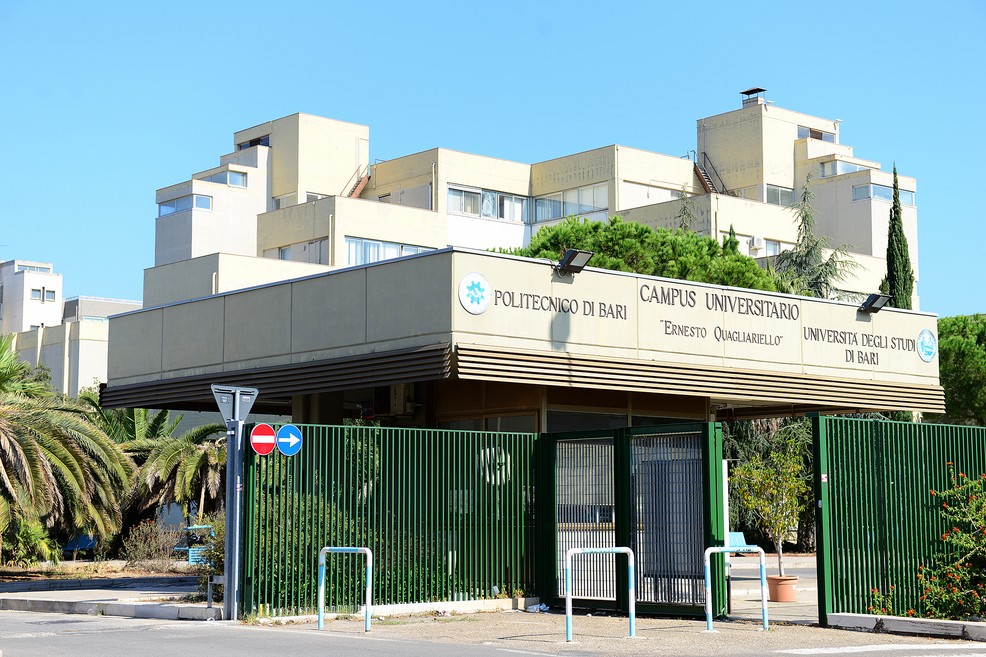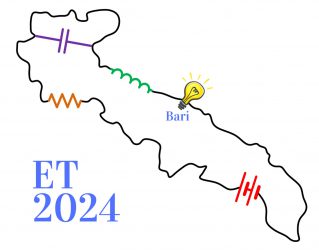In occasione della XXXVIII Riunione Nazionale dei Ricercatori di Elettrotecnica, la Scuola Nazionale Dottorandi di Elettrotecnica “F. Gasparini” propone un evento didattico indirizzato agli allievi dei Corsi di Dottorato di Ricerca, assegnisti, borsisti e a tutti i giovani ricercatori. La didattica della scuola è organizzata dalla Università di Napoli Federico II, con il supporto del Gruppo Nazionale di Elettrotecnica ed il contributo del Consorzio CREATE.
Le lezioni saranno erogate in inglese e si terranno mercoledì 19 giugno 2024 presso l’aula B del Politecnico di Bari.


Iscrizione
La partecipazione al corso è gratuita e a tutti i partecipanti al termine delle lezioni verrà rilasciato un attestato di partecipazione. La partecipazione alla scuola include anche il pranzo.
Per iscriversi alla scuola è sufficiente inviare una email al Comitato Organizzatore di ET2024 (et2024@poliba.it) e in cc alla Segreteria della Scuola (m.vetrano@consorziocreate.it) indicando nome, cognome, affiliazione, ed eventuali intolleranze alimentari.
N.B.La partecipazione al Corso è svincolata rispetto all’iscrizione a ET2024 e non richiede l’afferenza al Gruppo di Elettrotecnica.
Docente
Prof. Mauro Feliziani, Università dell’Aquila
Titolo
Wireless Power Transfer for Electric Vehicles
Abstract
This short course explores the emerging field of wireless power transfer (WPT) and how it could revolutionize road transportation through wireless charging of electric vehicles (EVs). The growth of electric mobility can mitigate the environmental problems caused by conventional internal combustion engine (ICE) vehicles, which are responsible for greenhouse gas (GHG) emissions. Conventional EV charging methods rely primarily on physical connections, such as plug-in chargers, to recharge the EV battery. These charging stations require users to physically park and plug in their vehicles. By enabling the wireless transfer of electricity, WPT offers a simpler, safer and more comfortable charging experience. Currently, WPT technology is almost ready to be applied to stationary EVs. However, extensive research is already underway to enable charging of electric vehicles while moving on electrified roads and lanes, using dynamic WPT technology. This advancement aims to eliminate problems related to the limited range of EVs and frequent stops to recharge. The development of the DWPT technology is of fundamental importance for the widespread adoption of autonomous driving systems, as it allows EVs to operate without any physical interaction from the user, achieving full autonomy and practically infinite range. This short course is a guide for PhD students and young researchers to understanding the principles, methodologies and applications of WPT for electric mobility
Programma
11.45 – 13.30: THEORY OF WIRELESS POWER TRANSFER
- Introduction to wireless power transfer
- Historical background
- Basic principles of WPT technologies
- Inductive power transfer
- Magnetic resonant coupling
- Performance of a WPT system
- Compensation topology networks
- Magnetic couplers
- Power electronics
- Electromagnetic field safety
- Electromagnetic compatibility
- Implanted medical devices
- Magnetic field mitigation
13.30 – 14.30: Pranzo
14.30 – 16.15: WPT SYSTEMS FOR ELECTRIC VEHICLES
- Electric vehicles
- Stationary WPT systems
- SAE J2954 Standard
- Dynamic WPT systems
16:15 – 16:45: Coffe break
16:45 – 18:30: DESIGN AND ANALYSIS OF WPT SYSTEMS
- Circuit models
- SPICE
- Magnetic field simulations
- MATLAB
- COMSOL
Come raggiungere il Politecnico di Bari
Il Politecnico di Bari è facilmente raggiungibile a piedi dal centro città.
Il Politecnico può anche essere raggiunto utilizzando il trasporto pubblico locale (AMTAB) dalla stazione Bari Centrale prendendo l’autobus 21. I biglietti sono acquistabili nella tabaccheria adiacente la stazione.

